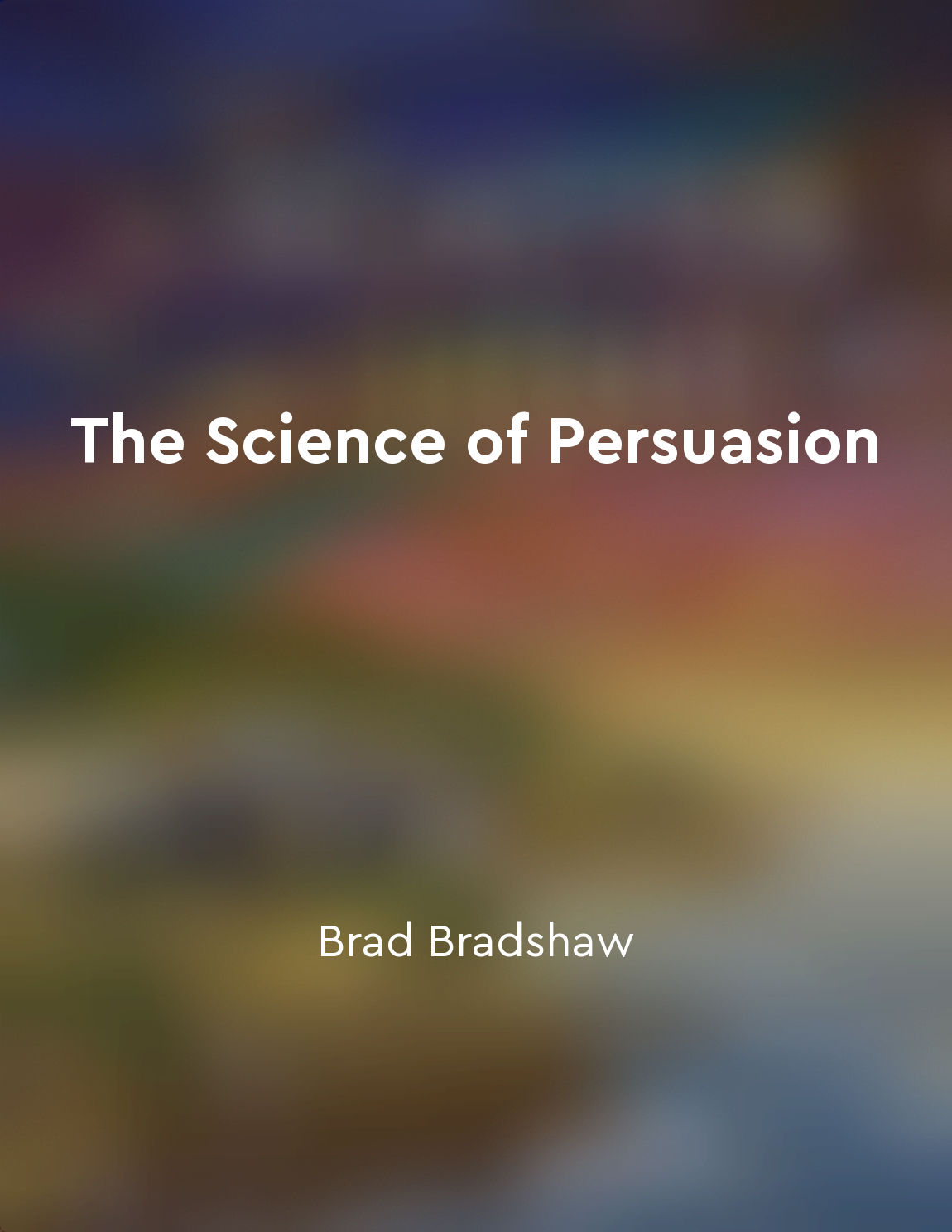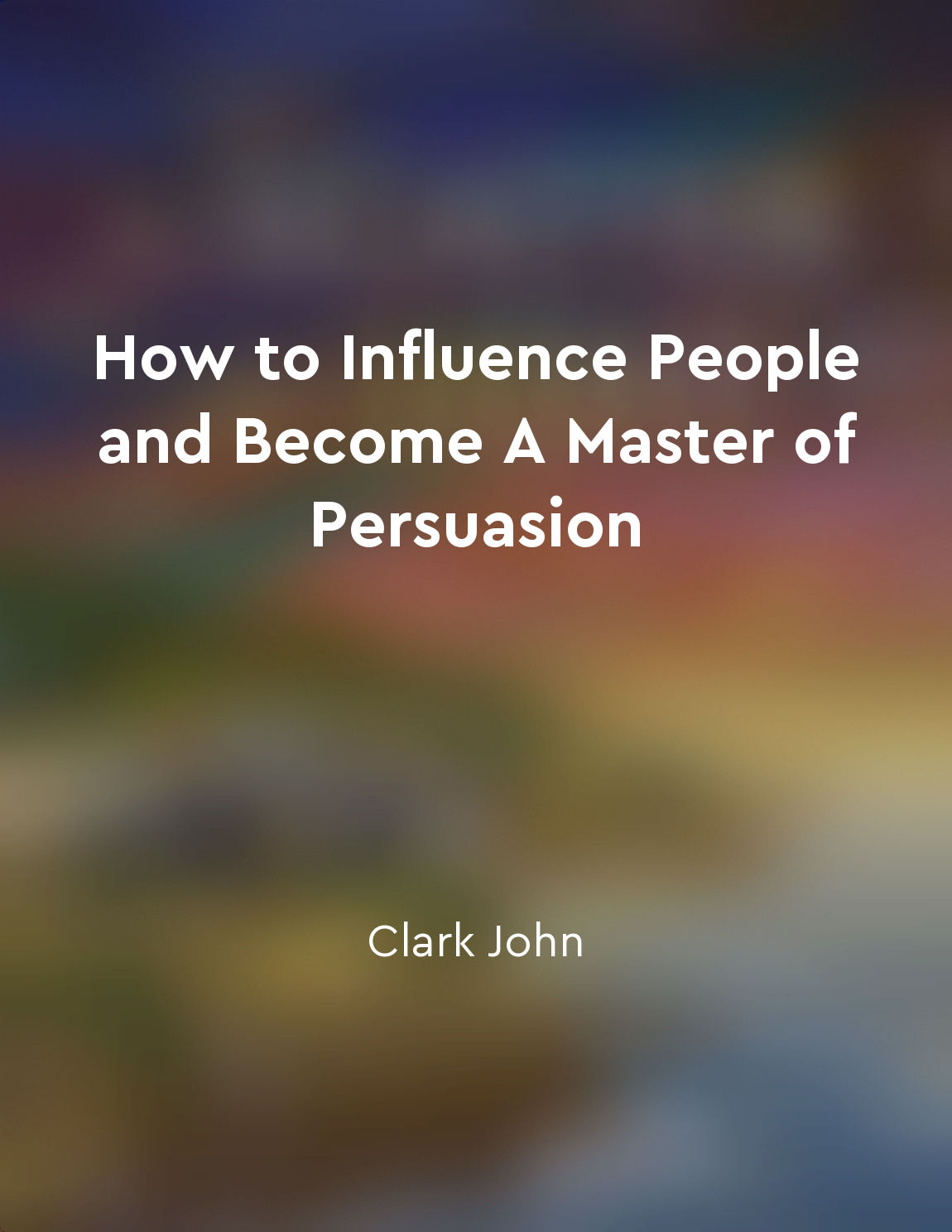Audio available in app
Consistency in small commitments can lead to larger commitments from "summary" of Influence, New and Expanded by Robert B. Cialdini, PhD
One of the most powerful tools of persuasion is the principle of consistency. This principle suggests that once we make a small commitment, we are more likely to make larger commitments that are consistent with our initial choice. This is because humans have a deep desire to be seen as consistent in their words and actions. When we make a small commitment, we begin to see ourselves as the type of person who follows through on their promises. This concept is illustrated in a study where participants were asked to sign a petition supporting safe driving. Later, they were approached to place a large, unsightly sign in their front yard promoting safe driving. Those who had signed the petition were significantly more likely to agree to the larger request. This is because they had already made a commitment to the cause of safe driving and were more inclined to stay consistent with that commitment. Another example of this principle in action is seen in a study where participants were asked to predict how much they would donate to a charity. Those who made a public prediction were more likely to follow through with their donation compared to those who did not make a prediction. This is because publicly stating their commitment created a sense of accountability and consistency. By starting with small, easy-to-agree-to commitments, persuaders can gradually increase the size of their requests. This gradual escalation makes it easier for individuals to justify their actions as consistent with their initial commitments. This principle can be used in various settings, from sales and marketing to personal relationships and negotiations.- The principle of consistency in small commitments leading to larger commitments highlights the importance of starting small and building upon initial agreements. By understanding this principle, individuals can become more effective persuaders and influencers in their interactions with others.
Similar Posts

Leveraging social connections can enhance persuasion
One powerful way to boost your persuasive abilities is by tapping into your social network. By leveraging the connections you h...
Group dynamics play a crucial role in shaping behavior
Group dynamics are a fundamental aspect of social psychology, influencing how individuals behave within a group setting. The in...

Recognizing and leveraging emotions can enhance persuasion
Understanding and using emotions effectively can be a powerful tool in the art of persuasion. Emotions play a significant role ...
Honesty is crucial in building lasting relationships
Honesty plays a fundamental role in the establishment of lasting relationships. When we are honest in our interactions with oth...
Build rapport before attempting to persuade
To be successful in persuading someone, you must first establish a connection with them. This connection, known as rapport, is ...
Contrast: highlighting differences to make decisions
Contrast is a powerful mental trigger that can help us make decisions more effectively. By highlighting differences between opt...
Focusing on the longterm benefits can help you persuade others to see the value in your ideas
When it comes to persuading others, it is crucial to focus on the long-term benefits of your ideas. By highlighting how your su...
Implementing the doorin-the-face technique for persuasion
The door-in-the-face technique is a classic strategy for persuasion. The basic idea is to make a large request that you know wi...
Storytelling can captivate an audience
One of the most powerful tools in communication is storytelling. When done effectively, storytelling has the ability to captiva...

Nonverbal cues can convey more meaning than words alone
When we communicate, we often focus on the words we use to convey our message. However, nonverbal cues play a crucial role in c...

